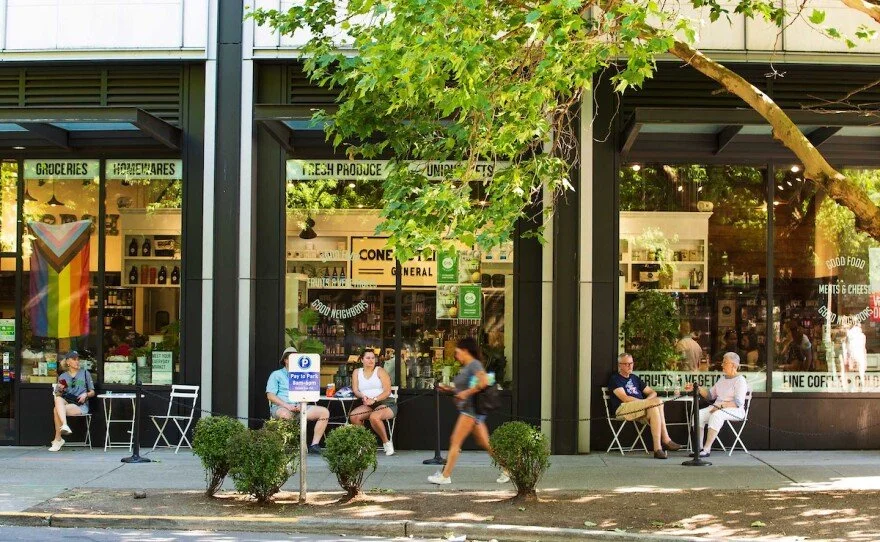New Proposal By Rinck and Mayor Hurts Seattle
Cruise season is in full swing, and downtown Seattle is finally buzzing with tourists and locals once again. For many restaurants and shops, this influx of people is a much-needed lifeline after months of dwindling foot traffic. Yet, beneath this temporary revival lies a troubling trend: downtown is becoming less attractive to residents, visitors, and businesses alike.
Concerns over rising street crime, a growing homeless population, and a city administration reluctant to treat property damage as a serious crime have weighed heavily on the Emerald City. Efforts to revitalize downtown have been minimal — limited mostly to murals and rhetoric — leaving both residents and business owners hoping for more meaningful change.
But instead of relief, a new tax proposal from Mayor Bruce Harrell and City Councilmember Tammy Rinker threatens to drive a deeper wedge between City Hall and the business community.
A Dangerous Shift in the B&O Tax Structure
Downtown Seattle is the economic engine of the region, supporting thousands of small and mid-sized businesses. In recent years, policies like the controversial head tax — championed by former councilmembers like Kshama Sawant and Teresa Mosqueda — pushed some large employers to reconsider their presence in the city.
Now, Mayor Harrell and Councilmember Rinker are proposing changes to the Business & Occupation (B&O) tax that could push mid-sized businesses to the brink. Their plan would raise the tax rate while simultaneously increasing the exemption threshold for small businesses. On the surface, this looks like a win for the little guy: the exemption would rise from $100,000 to $2 million in gross receipts, eliminating B&O taxes for about 16,000 businesses.
However, the proposal overlooks a critical flaw: the B&O tax is based on gross receipts, not profit. Many businesses — like independent bookstores, family-run restaurants, and local retailers — may have high sales volumes but operate on razor-thin margins. This plan could inadvertently penalize exactly the kinds of businesses Seattle should be trying to support.
Why the B&O Tax Proposal Misses the Mark
1. Threat to Growth Businesses: Startups and small tech firms often choose their headquarters based on projected growth. If they expect to exceed the $2 million exemption soon, they may bypass Seattle altogether in favor of cities with more stable tax environments.
2. Corporate Flight Risk: Large employers are already scaling back. Amazon, for example, is downsizing office space and expanding elsewhere, like in Sammamish. Their quiet retreat sends a strong message — and puts small downtown businesses that rely on these major tenants at serious risk.
3. Collapsing Ecosystem: When large employers leave, the fallout ripples throughout the community. Think of Seattle’s business ecosystem as a reef: if one part dies off, the rest — janitors, electricians, coffee shops, service providers — suffers too.
4. Fragile Revenue Assumptions: The city projects a net $90 million revenue increase from the new tax. But if more companies leave, office vacancies rise, property values decline, and sales tax revenues drop. What seems like a short-term win could lead to long-term financial instability.
5. Politically Motivated Timing: Critics argue the tax proposal is more about political optics than economic foresight — designed to energize anti-corporate voters during an election year, rather than solve Seattle’s pressing problems.
The Path Forward
Instead of punitive tax strategies, Seattle needs a bold vision to attract and retain businesses, restore public safety, and revive downtown vibrancy. The city’s leadership should be focused on fostering economic growth, not undermining it. Seattle has been known for local coffee, great bookstores and a vareity of flavors at its restaurants, we need to focus on helping, not hurting.
There is growing concern that Mayor Harrell, Councilmember Rinker, and others are reverting to failed policies that hurt not just businesses, but all Seattle residents. If the city wants to remain a beacon of innovation and opportunity, it must pursue smarter, more balanced solutions.

